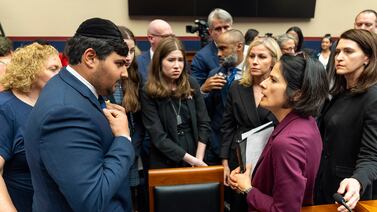Some students who are new to the U.S. and enrolled in Colorado schools after the official October count will not have to take any standardized tests this spring.
That’s according to new guidance issued recently by the Colorado Department of Education.
The department changed the guidance as school districts are seeing unprecedented numbers of new students who are new to the country. Teachers have described various challenges they’ve faced trying to educate migrant students, and the students are unlikely to do well on standardized state tests given in English. As of February, the Denver, Aurora, Cherry Creek, Greeley, Adams 12, Jeffco, and Mapleton districts told Chalkbeat they had enrolled more than 5,600 newcomer students after October count.
Denver Public School leaders told their school board this week that in their case, the majority of students new to the country will fall into that category to be exempt from testing.
Colorado students who are identified as new to the country and have no or limited proficiency in English already are exempt from taking standardized English reading and writing tests for at least their first year of school. Before the new guidance, they were expected to take standardized math and science tests with accommodations.
This spring, if students are new to the country, have no or little English fluency, enrolled after October count, and had limited or interrupted schooling before arriving, they can also skip the math and science tests.
Limited or interrupted schooling includes not attending school for six consecutive school calendar months prior to Colorado enrollment or having two or more years of missed schooling compared to similarly aged students in the U.S. Students who had limited school options in their home country because of war, civil unrest, or needing to travel a long distance to an available school could also qualify for that designation.
Students who have not had interrupted schooling will still be expected to take math and science tests with accommodations. Their participation will count toward overall participation rates, but their scores will not be factored into school ratings for state or federal accountability systems.
Colorado tests students in third through 11th grades. CMAS English and math tests are given to students in third through eighth grade. Science tests are only given to students in fifth, eighth, and 11th grades. In high school, students take the PSAT in ninth and tenth grades, and the SAT in 11th grade.
Families can always opt students out of tests.
In Colorado, this year’s spring testing window begins April 8, after most districts come back from spring break.
Reporter Ann Schimke contributed to this report.
Yesenia Robles is a reporter for Chalkbeat Colorado covering K-12 school districts and multilingual education. Contact Yesenia at yrobles@chalkbeat.org.








